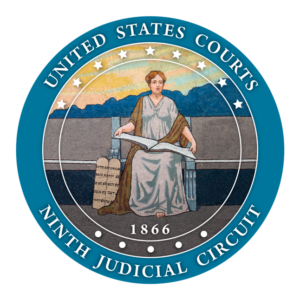 By Eden E. Anderson, Rebecca S. Bjork, and Gerald L. Maatman, Jr.
By Eden E. Anderson, Rebecca S. Bjork, and Gerald L. Maatman, Jr.
Duane Morris Takeaways: On July 19, 2024, in Lopez v. Aircraft Service International, Inc., Case No. 23-55015 (9th Cir. July 19, 2024), the U.S. Court of Appeals for the Ninth Circuit held that the Federal Arbitration Act’s (FAA) transportation worker exemption applies to an airplane fueling technician. Even though the technician had no hands-on contacts with goods, the Ninth Circuit held that was not required because fuel is necessary to flying the plane that holds the goods. The decision is yet another from the Ninth Circuit broadly applying the FAA’s transportation worker exemption, in spite of multiple recent decisions from the U.S. Supreme Court directing narrow that loop hole to mandatory arbitration. The Lopez decision presents an obstacle for employers seeking to enforce arbitration agreements and class action waivers within the Ninth Circuit, thereby opening the door to arguments that workers who do not even handle goods in the stream of commerce are exempt from arbitration if their work somehow supports the mechanism by which the goods travel.
Case Background
Danny Lopez worked as a fueling technician at Los Angeles International Airport. He added fuel to airplanes. After Lopez filed a wage & hour class action against his employer, the employer moved to compel arbitration. The district court denied the motion, concluding that Lopez was an exempt transportation worker because he was directly involved in the flow of goods in interstate or foreign commerce. It reasoned that, although Lopez did not handle goods in commerce, he was directly involved in the maintenance of the means by which the goods were transported. The employer appealed on the grounds that the FAA’s transportation worker exemption is to be narrowly construed and that Lopez did not have any hands-on contact with goods and direct participation in their movement.
The Ninth Circuit’s Decision
The Ninth Circuit began its analysis by mentioning the U.S. Supreme Court’s 2022 decision in Southwest Airlines Co. v. Saxon, 596 U.S. 450 (2022). In Saxon, the U.S. Supreme Court instructed that the transportation worker exemption is to be narrowly construed and does not turn on the industry within which the work is performed. Saxon held that airline ramp agents are nonetheless transportation workers exempt from the FAA because, in loading and unloading cargo onto airplanes, ramp agents play a “direct and necessary role in the free flow of goods across borders” and are “actively engaged in the transportation of those goods across via the channels of foreign or interstate commerce.” Id. at 458. Perceiving that the transportation worker exemption continued to be misapplied by lower courts, the U.S. Supreme Court repeated this same guidance this year in Bissonnette v. Le Page Bakeries Park St., LLC, 601 U.S. 246 (2024), and cautioned that the exemption should not be applied broadly to all workers who load and unload goods as they pass through the stream of interstate commerce.
While mentioning this recent controlling authority, the Ninth Circuit harkened back to its 2020 analysis of the transportation worker exemption in Rittman v. Amazon.com, Inc., 971 F.3d 904 (9th Cir. 2004), deeming it consistent with Saxon and Bissonnette. In Rittman, the Ninth Circuit held that Amazon delivery drivers making local, last mile deliveries of products from Amazon warehouses to customers’ homes were exempt transportation workers engaged in interstate or foreign commerce. Applying “the analytical approach applied in Rittman,” the Ninth Circuit concluded that Lopez was an exempt transportation worker because his fueling of airplanes was a “vital component” of the plane’s ability to fly. Id. at 12.
Implications Of The Decision
The Lopez decision is yet another from the Ninth Circuit broadly applying the FAA’s transportation worker exemption, in spite of multiple recent decisions from the U.S. Supreme Court directing narrow interpretation. The Lopez decision opens the door to arguments that workers who do not even handle goods in the stream of commerce are exempt from arbitration if their work somehow supports the mechanism by which the goods travel.






